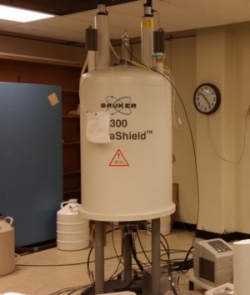
Research overview
Effective methods for processing chemical feedstocks derived from any source require a fundamental understanding of catalytically active materials. The goal might be chemical energy carriers, novel building blocks for new materials including polymers, or process modifications to reduce energy consumption and harmful byproducts. Heterogeneous catalysis is a highly-interdisciplinary field of science and engineering that works to address many of these challenges. The White Group contributes to this field by focusing on (1) synthetic and post-synthetic strategies to make well-characterized solid-acid catalysts; (2) designing new experimental strategies that can quantitatively characterize the nature of reactive sites in catalysts, as well as their distribution of active structures; and (3) in-situ experiments that probe reactions from the beginning stages of bond activation by the catalyst to final deactivation steps. Solid-state nuclear magnetic resonance and NMR diffusometry are key experimental tools that we use to explore this area, as well as electron microscopy, benchtop micro-reactor studies, and chemical titration methods.
We are grateful to the National Science Foundation, the U.S. Department of Energy, the American Chemical Society, and many industrial partners for their collaborations in our work.
Research Interest
Solid-State NMR
Phase Behavior of Heterogeneous Copolymer and Gradient Copolymers
Heterogeneous Catalysis in Solid Acids
Synthesis of Polymer Network
Composites from Polymers Intercalated in Mesoporous Materials
Polymer Blends, Copolymers, and Composites
Misciblility in Saturated Polyolefin Blends
Funding Acknowledgements
National Science Foundation Division of Materials Research
ACS PRF
US Department of Energy
Various Industrial Partners













